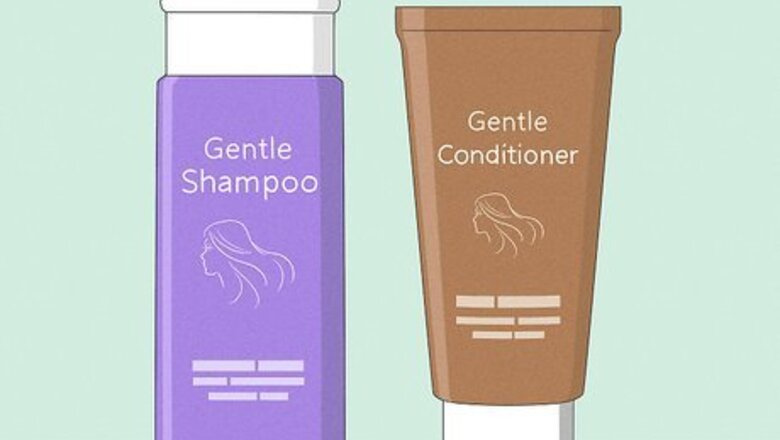
views
Starting a Healthy Routine
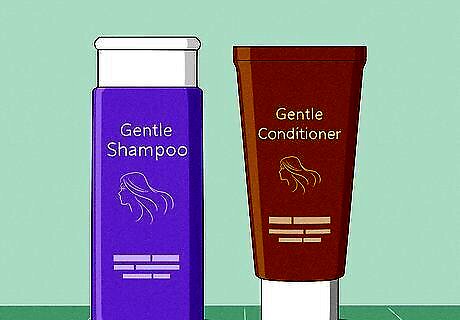
Use gentle shampoo and conditioner. Long hair starts with good hair care, and good hair care starts with using the right shampoo and conditioner. It's important to use products that increase the strength of your hair rather than causing damage. Ask your stylist to recommend professional products formulated for your hair type. There is an increasingly popular movement to use no shampoo at all, as your body naturally regulates hair oils.
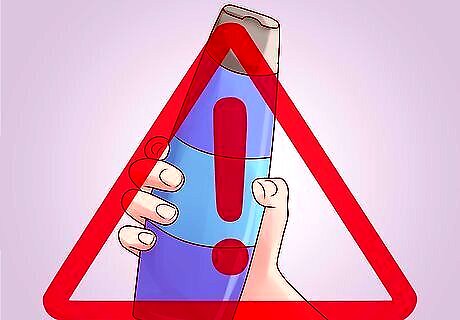
Avoid sulfates and parabens. Many shampoos contain chemicals called sulfates that are bad for your hair. These harsh chemicals make your hair weak and brittle, causing breakage which will keep you from growing those long, beautiful locks. Use shampoos labeled as being paraben and sulfate free, and avoid shampoos with SLS (sodium laurel sulfate) listed in the ingredients.
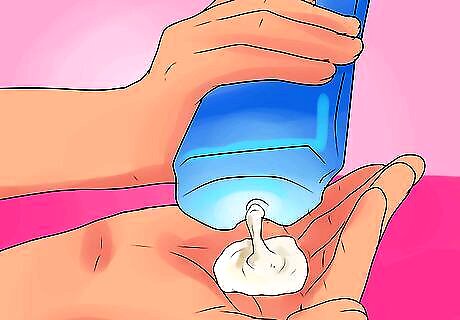
Use appropriate conditioners. Be sure your conditioner is free of silicones, which build up in your hair and cause damage over time. Condition only the longer parts of your hair, as the oils in conditioner can block hair follicles and slow the growing process.
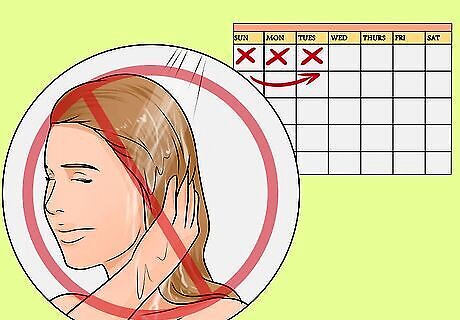
Wash your hair less often. Over-washing your hair can make it fragile and prone to breaking. Washing too much can also strip away the natural oils that your scalp produces. Most dermatologists and stylists agree that washing every day is unnecessary. Three or four times a week should be enough for most people, though some people might have to wash their hair everyday if their hair gets greasy easily.
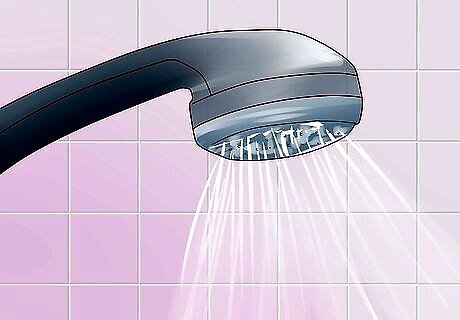
Wash your hair in cold water. Washing in hot, steamy water damages the hair shaft, leading to hair that is brittle and prone to breakage. Cool water will help seal the cuticle (outer layer) of your hair strands, making your hair sleeker and healthier. To keep it shiny and healthy, wash your hair in the coldest water you can stand. It is especially important to use cool water when rinsing out your conditioner. This will help lock in the moisture from the conditioner.
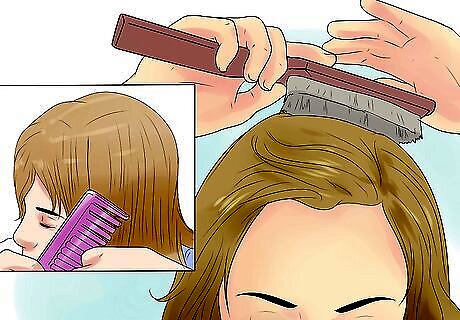
Brush and comb your hair gently. Brushing, combing, and the tools used to do this play a significant part in the health of your hair. Many people over-brush or use the wrong tools. While tangles and styling are a concern, be careful not to brush and comb too often. Using appropriate methods and tools will keep your hair strong. Brush hair only when it is needed, either to combat tangles or for styling purposes. Over-brushing and vigorous brushing can damage or pull out hair. Do not brush it when it is wet, either. Instead, comb it using a wide-toothed comb.
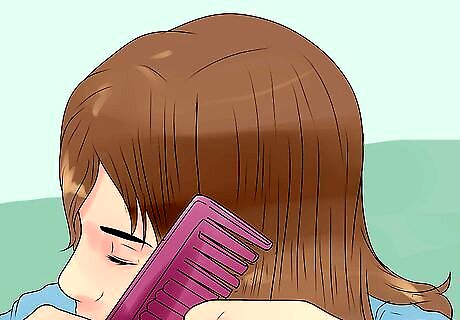
Use a comb instead of a brush on wet hair or knots. Combs and brushes serve different purposes. Use them correctly. Combs are for wet hair and removing knots, as well as parting hair and distributing styling products. Brushes are for distributing hair’s natural oils, styling and using with a blow dryer. For example, using a comb to remove tangles allows you to more carefully tease the knot apart without breaking the hair. Brushes do not allow for this kind of finesse.
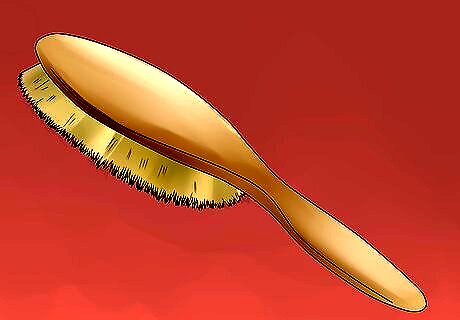
Use the right kind of brush. Don’t use plastic brushes, as these can be harsh on your scalp and create split ends. Instead, opt for a brush with soft, natural bristles. Boar-hair brushes are particularly recommended. Stiff bristled brushes are best for very thick and curly hair, which cannot be managed with a soft bristled brush.
Using Healthy Styling Techniques
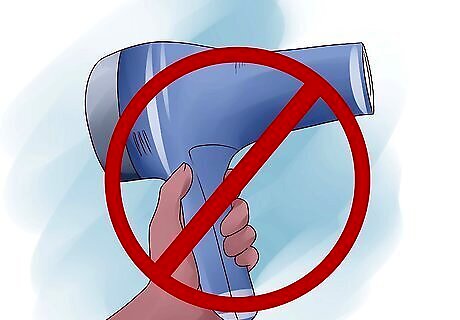
Minimize your use of heating tools. These are very harsh on your hair and should not be used too often. Products such as hair serum should always be used when applying heat, in order to protect your hair. Be sure that you also do not have the heat setting too high. Try to use things like blow dryers on their lowest setting.
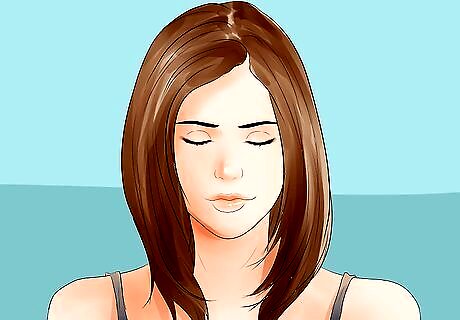
Wear your hair down as much as possible. Avoid tight hairstyles like ponytails and buns or too-tight braids and extensions, as these pull hair and hinder growth. The strain on hair from tight styles such as these can leader hair to weaken and break. It also puts strain on the scalp itself by inhibiting blood flow. This can lead to headaches and keeps hair from getting necessary nutrients. The places on your scalp which see the most strain could even see hair loss (traction alopecia). Use looser styles if possible and try to avoid hair ties with metal pieces, as these can catch on and pull out hair. Rubber bands and tight elastic ties can also pull out hair. Look for “ouchless” or no-damage hair ties, or gentle elastic ribbon ties.
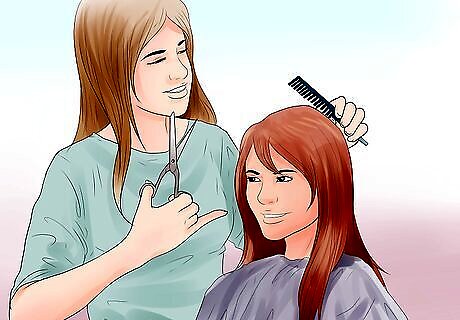
Trim your hair. It may seem counter-intuitive, but trimming your hair can actually promote hair growth. When split ends develop, this weakens hair and causes it to break. If hair is trimmed regularly, this will significantly reduce split ends, leading to stronger and better-looking hair. Hair should be trimmed by half to one inch every six to eight weeks. Even if trimming means you have to sacrifice more length than you’d like, keep in mind that it’s better to have shorter, healthier hair than long, unhealthy hair.
Building Stronger Hair
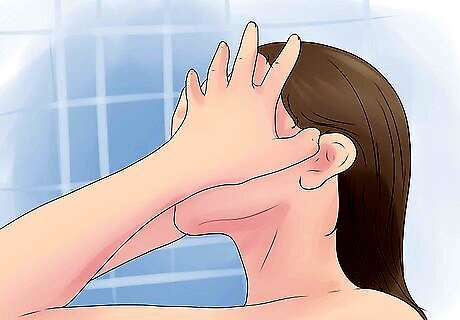
Stimulate your scalp. Stimulating your scalp with massages, pinching, or brushing with a soft bristle brush can promote hair growth. This increases blood flow to the hair follicles, which brings needed nutrients to your hair. This can also help to reduce headaches brought on by the too-tight hairstyles mentioned above. Try one of these common scalp massage techniques: Effleurage: This technique is meant to warm the muscle tissue and improve circulation to the scalp. It involves gently stroking the scalp with the fingertips or palms of the hands. Petrissage: This massage involves kneading the scalp, resulting in a deeper massage than the gentler effleurage technique. Petrissage relaxes and stretches the muscles, and also improves circulation to the scalp.
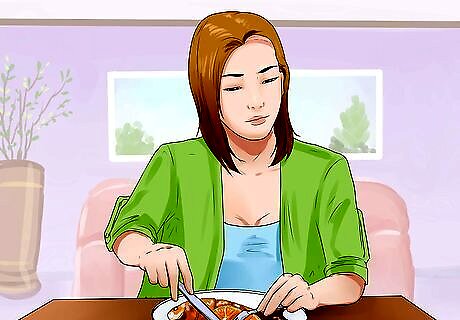
Eat healthy. Eating healthy will have a huge impact on hair growth. Your diet affects the nutrients in your body, and those nutrients are used to build new hair. If you do not have the proper nutrients, your body cannot build hair as quickly or as strongly. Eat a proper diet with the correct nutrients to promote hair growth. Protein: Hair is made mainly of proteins, so your body cannot build good strong hair if it does not have enough. Make sure you are getting complete proteins, either by eating meat, soy products, or multiple alternative sources of protein. Beans, seeds, nuts, milk, and seaweed are good alternative sources of protein but must be eaten in combination to produce a complete protein. Omega-3 Fatty Acids: Your body needs these to produce hair. Hair is made up of 3% fatty acids such as these. However, your body can’t produce these on its own, so you need to be sure that your diet includes these. Fish (such as salmon) and nuts (such as walnuts) are an excellent source of these healthy fats, as well as protein. Zinc: Without zinc, your scalp will become dry and itchy. This can lead to poor hair growth or even hair loss. Get more zinc in your diet by consuming fortified cereals and grains, oysters, and eggs. Vitamin A or beta carotene: Consuming beta carotene allows your body to produce vitamin A. Vitamin A serves many functions in your body but also helps to regulate the oils on your scalp. Without these oils your skin will become dry and your hair will become damaged. Increase beta carotene in your diet by eating lots of sweet potatoes, pumpkin, apricots and carrots. Iron: Iron is necessary for helping oxygenate the blood. This oxygen is necessary for healthy hair. Low iron is a major cause of hair loss, especially in women. Get more iron in your diet by eating dark greens, eggs, and meat. Vitamin B: The entire vitamin B class will help promote healthy hair. Vitamin B5 is necessary to process the fatty acids mentioned above and B7 and B12 are used to process proteins. B9 affects cell growth directly. Get more B vitamins in your diet by consuming turkey, tuna, and lentils. Vitamin E: Vitamin E is absolutely essential to healthy skin and healthy skin means a healthy scalp. It also helps to protect hair. Get more vitamin E by eating sunflower seeds, nuts, and avocados.
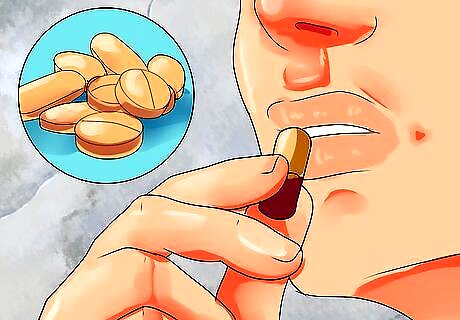
Take vitamin supplements. Taking vitamins will help ensure that your body has the nutrients it needs to produce healthy hair. While eating a well-balanced, healthy diet should allow you to have the proper nutrients, vitamin supplements can help you ensure that you are getting the proper amount of each vitamin. Prenatal vitamin supplements are probably best suited to promoting hair growth, as these contain the vitamins most commonly associated with healthy hair. Not everyone reacts to vitamin supplements in the same way, or has the same dietary needs. Consult your doctor before starting any dietary supplement.
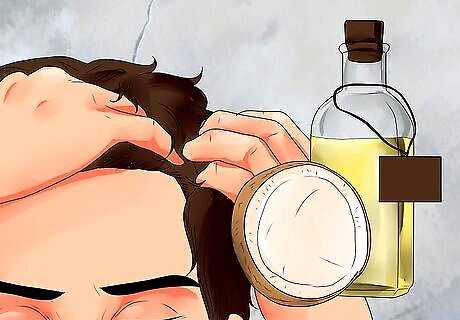
Give your hair an antioxidant mask. Applying a couple tablespoons of olive oil and coconut oil every couple weeks will flush your hair with antioxidants to fend off decay from free radicals. Mix the oils together and heat the mixture up until it's warm. Make sure it won't burn your scalp. Comb the mixture through hair. Make sure to get both the ends and the roots. Let your hair sit for 20 to 30 minutes, then wash thoroughly and air dry.
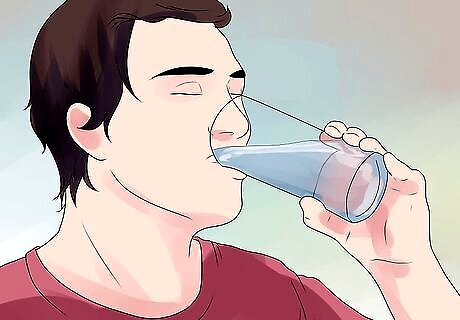
Drink water. Drinking water will promote a healthier scalp and healthier hair. When your body doesn't get enough water, it begins to dry out. The skin and hair are the first and most noticeable areas of dryness from dehydration. Eight glasses of water per day is the typical recommended amount for an adult.
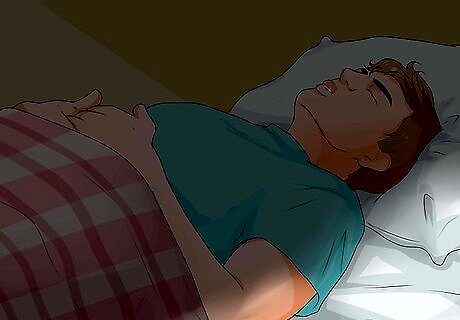
Get plenty of sleep. Regular sleep cycles help your body regulate melatonin and cortisol levels, both of which affect hair growth. Also, sleep is necessary to maintaining your body in general. When your body doesn't get enough sleep, it begins to shut down side processes like hair production. Each person is different in how much sleep they need, so be sure to get the right amount for your body.
Making an At-Home Hair Mask
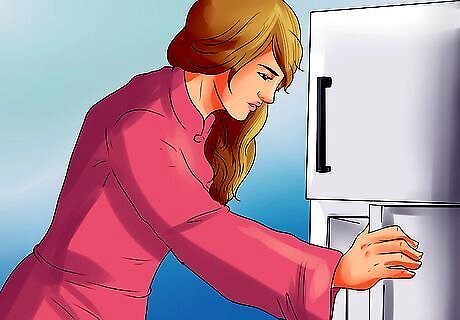
Raid your refrigerator. Here are the ingredients you'll need for a basic hair mask: 2 eggs 1 tsp cinnamon 1 tsp mustard 2 tbsp of an oil of your choice (such as coconut oil, jojoba oil, grapeseed oil, castor oil, agave oil, or olive oil -- or you could mix all of them!) Of course, you could use other ingredients, too! Milk, lemon (though this could lighten your hair), honey, and apple cider vinegar are four common additions that are just as effective. And if you don't like the smell of mustard, replace it! Olive oil is great for hair strength and shine. Milk and coconut oil will make it soft and luxurious. Honey will add a glow and apple cider vinegar will bring it back to life. The healthier your hair is, the faster it will grow.
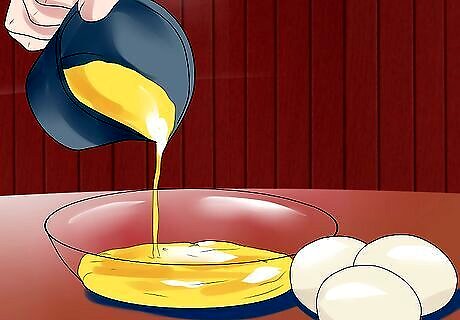
Mix your ingredients together in a bowl. Be sure all of the egg has been mixed in thoroughly, as that will take the longest to incorporate. If you have super long hair, you may want to use another egg or some more oil to make your mix go further.
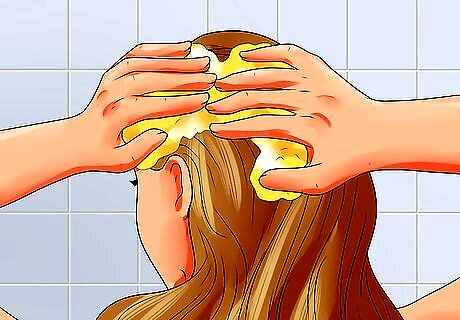
Apply to first your roots, making sure to massage it in. Don't be afraid to get your fingers messy! The more you really get in there, the better your results will be. You want every strand saturated by your magical concoction. Coat your hair from the top, then flip your hair over and coat from the bottom. Part your hair in several different ways before you even think about being done. And make sure to get around your ears!
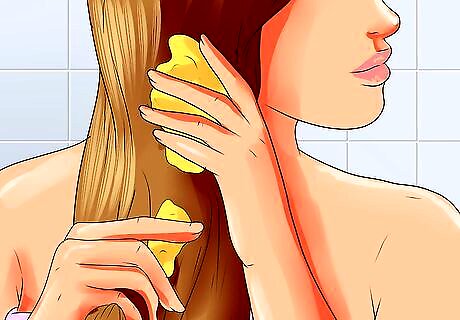
Apply the remainder of your potion to the rest of your hair. Make sure to coat your entire scalp on through to your ends. However, the most important part is your scalp, as that is where the root is stimulated to grow. Once you think you're done, go at it for another few minutes.
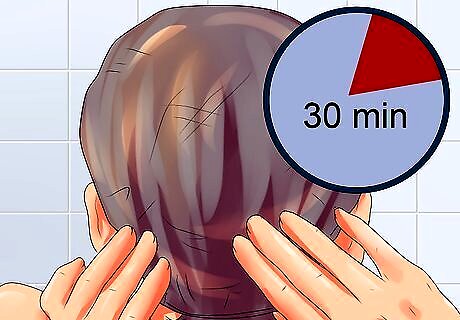
Put your hair up and leave for 30 minutes. A bun, shower cap, pig tails or a ponytail will do, but since you'll probably be tempted to touch it, a shower cap is your best bet. You could also wrap it in a thin towel, too. Go do some yoga while you're watching TV, and come back when the episode is finished.
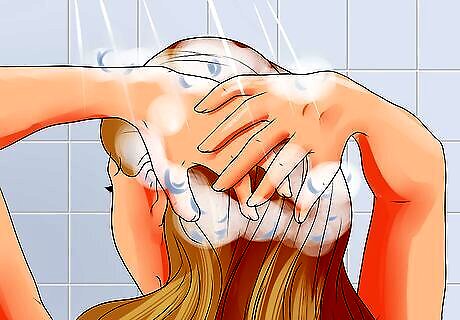
Wash your hair well and wash the eggs out with cold water. It’s very important to rinse with cold water, since washing eggs out of your hair with hot water will cause them to fry in your hair. Eggs are some sticky business, so wash your hair as normal -- but wash it well. Make darn sure that all the sticky goodness is out, since you don't want to smell like a jar of mayonnaise later on in the day. Shampoo and condition as usual, if you'd like. The drier your hair is normally, the less likely it is that your hair will need shampooing. You know your hair -- will the mask make it at all greasy? If you're prone to quick oil build-up, use shampoo. If not, you can skip it.
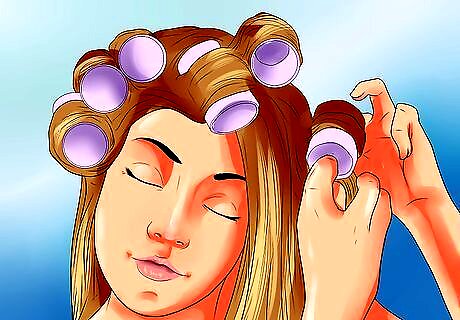
Style as usual. You can use a deep-treatment mask like this up to once a week, if you'd like. You'll see a difference in no time!













Comments
0 comment